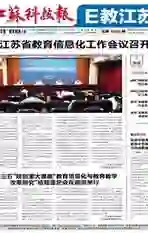联合国教科文组织开放教育资源建议书指导下的疫情期间开放教育实践指南(一)
2020-12-21
With the Coronavirus (COVID-19) rapidly spreading worldwide, several countries have initiated several strategies to stop the spread of this virus, including school closures. UNESCO stated that, as of 17 May, almost 1.21 billion learners were affected, accounting for 69.3% of the worlds student population. Particularly, China was the first to adopt the policy of “Disrupted Classes, Undisrupted Learning” by providing online, distance and remote teaching. However, several educational challenges appeared during this unexpected critical situation of COVID-19 outbreak. For instance, in this first-ever application of pure long-term online learning (without face-to-face learning or blended learning), both teachers and learners should not feel that they are left alone during the teaching and learning processes. Additionally, new effective pedagogical approaches are needed to keep learners motivated and engaged during this long period of online learning. In this context, several researchers suggested the use of Open Educational Practices (OEP) and Resources (OER) to provide engaging and interactive experience.
Additionally, UNESCO (2019) provided five objectives that should be focused on facilitation of OER adoption, namely: (ⅰ) Building capacity of stakeholders to create access, re-use, adapt and redistribute OER; (ⅱ) Developing supportive policy; (ⅲ) Encouraging inclusive and equitable quality OER; (ⅳ) Nurturing the creation of sustainability models for OER; (ⅴ) Facilitating international cooperation. Therefore, this handbook discusses the use of OEP and OER during COVID-19 outbreak through global vivid stories and experiences, and in line with the five UNESCO objectives. It also discusses OER competencies for OEP. Finally, this handbook provides guidelines to both teachers and learners to facilitate OEP and OER application.
1.Background of using open educational practices during the COVID-19 outbreak
1.1.Importance of open educational practices during COVID-19
The Chinese Ministry of Education (MoE) and several education specialists and universities have started discussing the use of information and communication technology(ICT) to reform the entire educational system in the midst of this coronavirus outbreak and provide online and distance learning instead, even with disrupted classes. While online and distance education is not new in China, several challenges have arisen in China and worldwide regarding this type of system in this unexpected and critical situation: Lack of preparation time; Teacher/learner isolation; Need for effective pedagogical approaches.
To help overcome the problem of limited time to prepare online learning content, teachers should make use of the thousands of open educational resources (OER) published by the MoE and available in other national and international repositories as well as public online tools, platforms, and enabling technologies.
1.2.Implications for teaching and learning
OEP have the ability to improve the opportunity of accessing good educational content for learners, hence help in achieving accessible learning and lifelong learning. Additionally, OEP allow learners to be engaged and active during the learning process. Furthermore, OEP go a step beyond active learning by engaging learners in creating and revising OER, hence contributing to the learning of the learners who come after them. This can further help learners gain digital literacy skills (searching, assessing, and identifying online resources), which are fundamental for 21st-century literacy. Moreover, OEP offer potential for new approaches to pedagogy that, by one observation, can create “a site of praxis, a place where theories about learning, teaching, technology, and social justice enter into a conversation with each other and inform the development of educational practices and structures”. Some innovative pedagogy have been explored in China to ensure the quality of higher education course during COVID-19 outbreak.
As both OEP and OER can facilitate the learning and teaching processes during the educational disruption due to the COVID-19 outbreak, several international organizations, including the United Nations Educational, Scientific and Cultural Organization (UNESCO), Arab League Educational, Cultural and Scientific Organization (ALECSO) and Commonwealth of Learning (COL) have shared quality OER and tools on their webpages for teachers and learners to use during the educational process at home. Additionally, ALECSO, for instance, is now providing OER trainings to help teachers in the Arab region create and share their OER with others to maintain undisrupted learning.
随着新型冠状病毒肺炎疫情在世界范围内迅速蔓延,一些国家已经采取一些策略来阻止这种病毒的传播,包括关闭学校。联合国教科文组织指出,截至5月17日,将近12.1亿名学习者受到影响,占世界学生总数的69.3%。特别是中国,第一个采取“停课不停学”的政策,提供在线学习和远程教育。然而,在新冠肺炎疫情暴发这一意想不到的危急情况下,教育方面出现了一些挑战。例如,首次长期应用纯在线学习(没有面对面学习或混合学习),教师和学习者都感到在教学过程中被孤立了。此外,为了让学习者能在漫长的在线学习期间保持积极性和参与性,需要新的有效的教学方法。在这种情况下,一些研究人员建议使用开放教育实践(后文简称OEP)和开放教育资源(后文简称OER)来提供吸引人的互动体验。
此外,联合国教科文组织2019年在《开放式教育资源建议书》中提出了五个目标:增强利益攸关方创建、获取、再利用、改编和重新发布开放教育资源的能力;制定支持政策;鼓励包容、公平的优质开放式教育资源;促进创建可持续的开放教育资源模式;促进国际合作,提出应着重推进OER的采用。因此,通过全球实际的案例和经验,根据联合国教科文组织的五项目标,本指南讨论了在COVID-19暴发期间OEP和OER的使用。它还讨论了OER对OEP的要求。最后,本指南为教师和学习者提供了指导方针,并促进OEP和OER的应用。
1.新冠肺炎疫情暴发下的开放教育实践应用背景
1.1疫情期间开放教育实践的重要性
在疫情暴发期间,中国教育部和一些教育专家、大学研究讨论了利用信息和通信技术(ICT)来改革整个教育系统,这样即使课程中断,也可以提供在线学习和远程教育。虽然在线学习和远程教育早已在中国开展,但在这种突发的危急情况下,中国和世界各地的教育都面临着挑战:缺乏准备时间;师生时空分离;需要有效的教學方法。
为了克服准备在线学习资源时间有限的问题,教师可利用教育部出版的、其他国家和国际资源库中提供的数千种开放教育资源(OER),以及公共的在线工具、平台和技术。
1.2对教学的启示
OEP能为学习者提供获得良好教育内容的机会,因此有助于实现无障碍学习和终身学习。OEP能让学习者活跃地参与学习过程。OEP还能通过让学习者参与创建和修订OER,一步超越主动学习,为后来的学习者的学习做出贡献。它可以进一步帮助学习者获得数字素养(搜索、评估和识别在线资源),这是21世纪学生必备的素养。此外,OEP促进了新教学法的出现,根据观察,该方法可以创建“一个能相互交流学习、教学、技术和社会正义等理论,并能得知教育实践和结构发展情况的实践场所”。中国探索了一些创新的教学法,以确保疫情期间高等教育课程质量。
由于OEP和OER均可在因疫情暴发而导致的教育中断期间促进学习和教学过程,因此一些国际组织,如联合国教科文组织(UNESCO)、阿拉伯教科文组织(ALECSO)和英联邦学习共同体(COL),都在其官网上共享了高质量的OER和工具,供教师和学习者在家庭中使用。此外,阿拉伯教科文组织正在为本地区教师提供OER培训,以帮助他们创建OER并与其他人共享OER,从而保证学习不受干扰。
